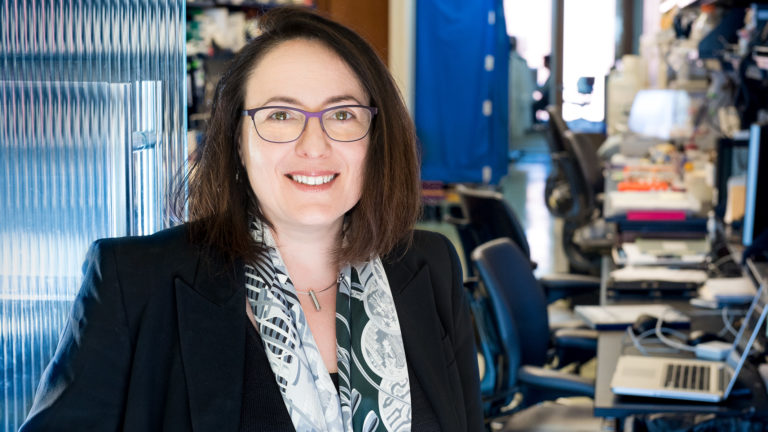
Greek scientist Katerina Akassoglou, who is a leading neurology researcher at the Gladstone Institute at the University of California, has won the prestigious Barancik Prize for Innovation in Multiple Sclerosis Research. Akassoglou will receive the award and deliver the Prize lecture at the Americas Committee for Treatment and Research in Multiple Sclerosis (ACTRIMS) Forum this week in Dallas, Texas.
Dr. Akassoglou was the head of a team that discovered the role of a blood-clotting protein called fibrin in the disease. Using an antibody that inhibits fibrin, her team has been able to decrease the activation of microglia, and reduce subsequent damage to nerve fibres in mice.
The team found that some of these blood molecules could induce inflammation and the formation of edema (swelling) as well as neuronal damage in a variety of neurological diseases, including MS and Alzheimer’s disease, as well as stroke and spinal cord injury.
In a series of experiments, Akassoglou’s team first showed that deposits in MS lesions of one such molecule called fibrin, known for its role in blood clotting, can hamper the natural nervous system repair and activate microglia — immune cells in the brain — triggering inflammation and nerve damage.
In an interview with AMNA, she spoke about her early days in Athens’ Nea Smyrni district, her parents’ struggles to support her studies, the people that inspired her and her decision to head to the United States to pursue her career in research.
Receiving the Barancik Prize was a great honour, Akassoglou said while noting that the award came in recognition of the discovery, through her team’s research, of new mechanisms of neurodegeneration that involve the body’s immune system and make it toxic to neurons.
Asked whether MS can be beaten, Akassoglou said that this would require an in-depth understanding of the pathophysiology of the disease to develop new modifying treatments and finally, a more effective cure.
Her own team’s breakthrough came, she said, by realising that there was interaction between the brain, immune and vascular system that is crucial in the development of the disease.
“These findings can lead to the creation of new tools for diagnosis and treatment,” she explained, pointing out that these might also prove useful for those suffering from brain trauma or Alzheimer's.
On the secret of her success, she noted that that one needed a long-term vision in the sector of research and a willingness to chase ideas that might not initially be popular, as well as to expert teams of scientists that had enthusiasm and a keen work ethic, international scientific cooperation, financial support, cutting-edge technology and faith that, one day, the findings of basic research will help improve the lives of patients and defend public health.